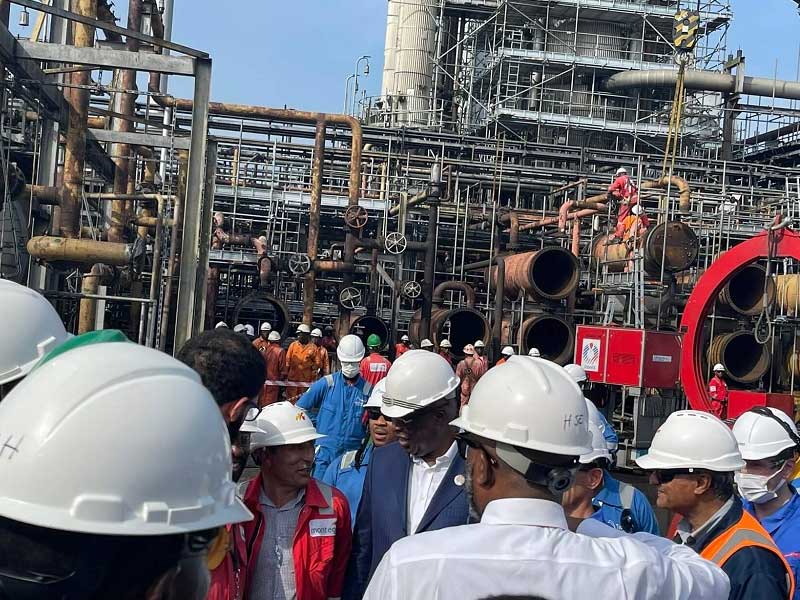
The government has a budget of up to 3 trillion baht available for economic stimulus over the next four years, says Finance Minister Pichai Chunhavajira. In his keynote speech titled "Navigating Economic Challenges: The Future of Fiscal Policy", organised by The Standard Wednesday, Mr Pichai said according to the government's fiscal sustainability framework, public debt is capped at 70% of GDP. In fiscal 2024, which ended in September, the government's public debt was at 65-66% of GDP, or around 12 trillion baht.
This leaves the government fiscal space of about 4%, he said. Mr Pichai said if the debt-to-GDP ratio is kept under 70% over the next four years, the government will have around 3 trillion baht in fiscal space, bringing public debt to around 15 trillion baht. "The government's public debt increased significantly, particularly during the Covid period, as 10 years ago public debt was only 48% of GDP," he said.

To drive economic growth, Mr Pichai insisted Thailand needs to increase domestic investment, which has remained consistently low. Over the past two decades, domestic investment has accounted for 20-22% of GDP, down from a previous high of 40%. Last year, domestic investment tallied only 19% of GDP.
As a result, Thai GDP has remained low, averaging just 1.9% growth over the past decade. For the pandemic period of 2020-21, average GDP growth was 0.
4%. This year, growth of 2.7% is predicted, with inflation of 0.
7-0.8%. Low economic growth has caused household debt to rise, reaching 89% of GDP, he said.
Mr Pichai said when a country has low investment, there is high liquidity, attracting investors to stock markets looking for short-term opportunities. The Thai stock market has hovered around 1,500-1,600 points, unable to reach the 2,000 level many had hoped for, he said. "As a result, Thailand is like a wealthy individual who cannot see the future, merely living off past gains," said Mr Pichai.
To increase domestic investment, the government has been using the state budget to transition from outdated investment platforms to new ones that leverage advanced technology, he said. However, to attract investment to the country, Thailand needs to enhance essential infrastructure and reduce logistics and energy costs, said Mr Pichai. The country should also utilise energy resources in the overlapping Thailand-Cambodia claims area, which are valued at around 10 trillion baht and projected to be usable for 10 years.
Other measures include addressing investment barriers by developing industrial skills, promoting green energy and eliminating bureaucracy red tape, he said. Mr Pichai said he wants annual targets of 3.5% for GDP growth and 2% for inflation.
"After the 1997 Asian financial crisis, we were afraid to accelerate the economy, so we tried to apply the brakes. Now we need to speed up the growth rate," he said. Mr Pichai mentioned other government investment schemes, such as the Land Bridge project, connecting the Gulf of Thailand with the Andaman Sea for goods transport from China to the Middle East and Africa, as well as the entertainment complex project.
The government also has a plan to reduce travel costs by capping Bangkok train fares at 20-25 baht per trip, with funding raised through an infrastructure fund. Regarding investment in the real estate sector, he said high household debt has blunted demand. The government wants to stimulate demand, using state-owned land or land owned by the State Railway of Thailand to build affordable housing for low-income earners to rent at prices 70% of the market rate.
In addition, the government plans to amend "rights over leasehold asset" laws, or lease agreements for real estate to allow leases of 70-80 years, compared with the current limit of 30 years. For private landowners wanting to sell land to foreigners, the government may propose allowing them to transfer their land to the state first, then foreigners can lease it, ensuring the land remains Thai-owned when the lease expires, said Mr Pichai. He said the government must improve the country's production efficiency, particularly in the agricultural sector, to make products more competitive.
Higher efficiency would allow the government to reduce subsidies, freeing up funds to propel the economy while reducing the government's annual budget deficit to a ceiling of 800 billion baht, said Mr Pichai. He said the prime minister is scheduled to chair an economic stimulus committee meeting on Nov 19, with the agenda focusing on the second phase of the cash handout and the debt restructuring programme for small-scale debtors at financial institutions..














